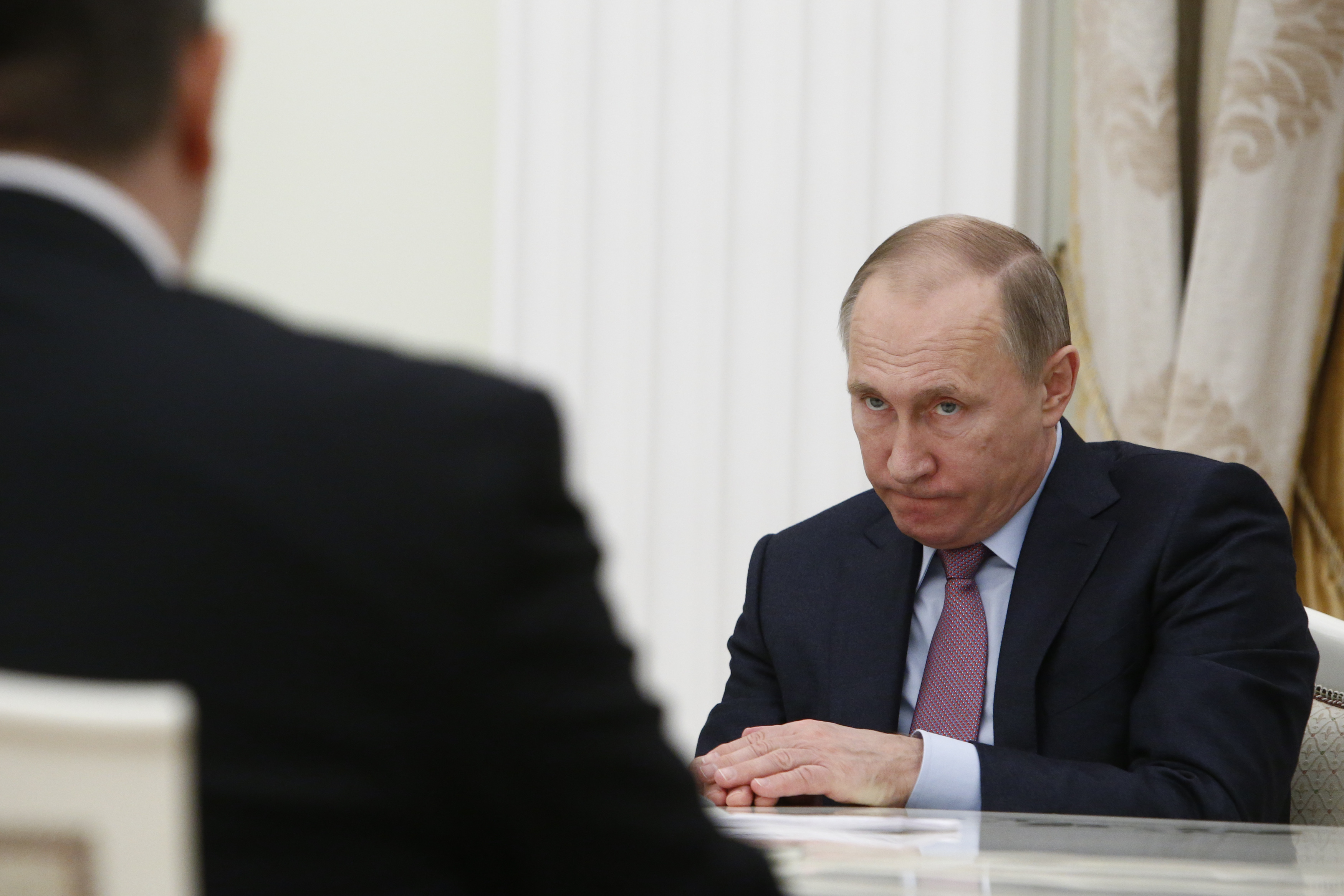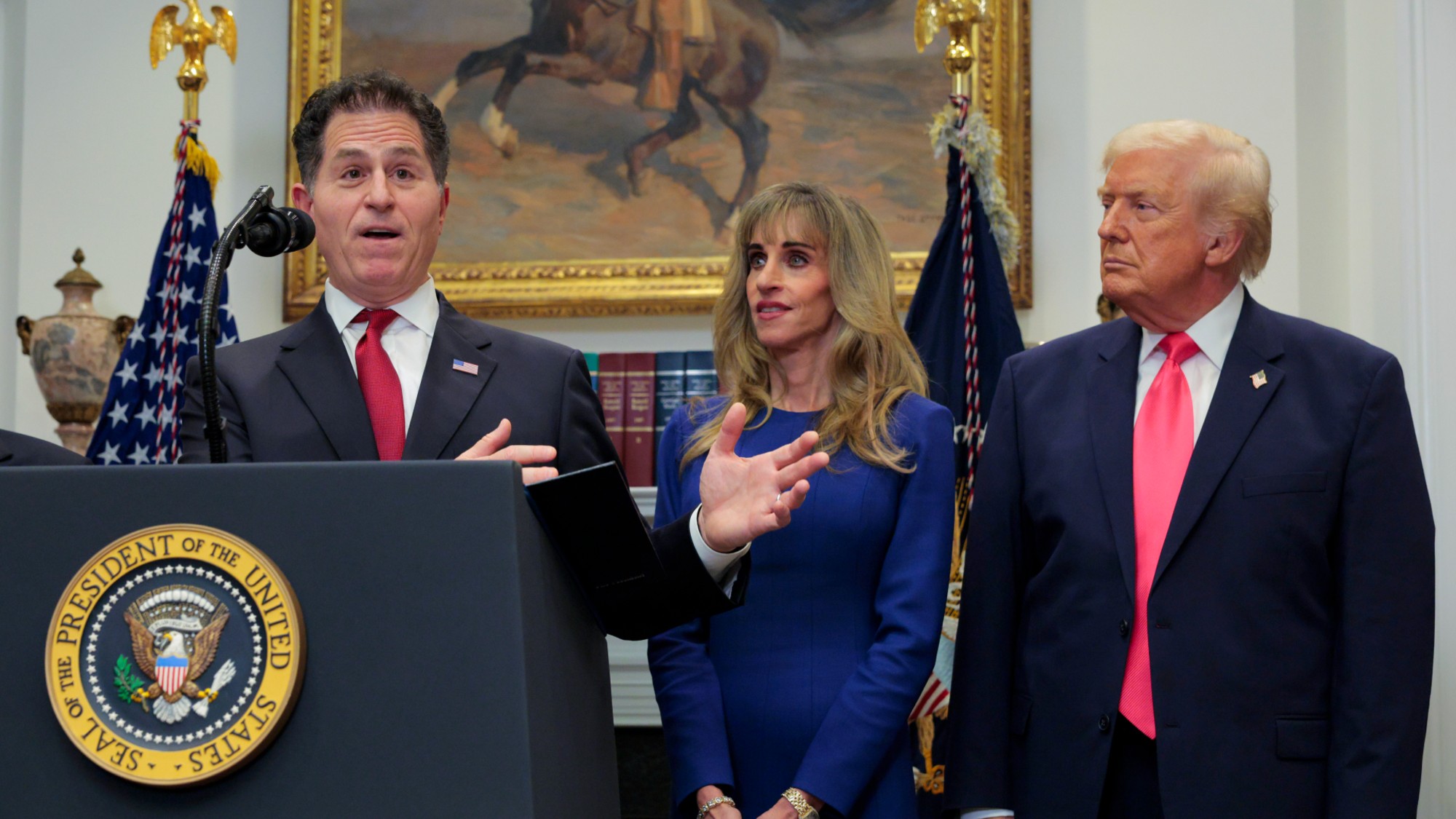How Russia is using 'counterterrorism' to sucker Trump
All is not what it seems


Beware of Russians bearing gifts. All is not what it seems — particularly when the gifts are promises to help Western powers fight Islamic terrorism.
Let's rewind to the immediate aftermath of the September 11 attacks, when the George W. Bush administration told us to watch out for despotic governments that try to use the cloak of fighting terrorism to carry out their dirty internal business. In an important speech at the United Nations in November 2001, Bush said, "The war against terror must not serve as an excuse to persecute ethnic and religious minorities in any country. Innocent people must be allowed to live their own lives, by their own customs, under their own religion."
As an example, consider the Uighurs, an Islam-practicing ethnic minority that runs afoul of the Chinese government. John Derbyshire — today a Trump supporter who writes for the ethnonationalist website VDare.com, but in 2001 a sane, if provocative, National Review columnist — spied in the Uighurs' plight a contemporaneous example of what we might call counterterrorism piggybacking:
The Week
Escape your echo chamber. Get the facts behind the news, plus analysis from multiple perspectives.

Sign up for The Week's Free Newsletters
From our morning news briefing to a weekly Good News Newsletter, get the best of The Week delivered directly to your inbox.
From our morning news briefing to a weekly Good News Newsletter, get the best of The Week delivered directly to your inbox.
"For the most part, Uighur resistance is principled and constitutionalist, but there is also an extremist element that has let off bombs in public places in China," Derbyshire wrote. "There is, in short, a terrorist component to the Uighur resistance. The Chinese communists have, of course, seized eagerly on this fact to discredit all resistance to their imperial rule. In their statements of support for this new war on terrorism, they are careful to say that what they are supporting is a war against 'terrorism and separatism.' Translation: The democrats of Taiwan, the Dalai Lama, and Uighurs struggling for the independence of Eastern Turkestan, are no better than the World Trade Center bombers."
China is hardly alone here. This twinning of "terrorism and separatism" is also how Russia views its problem with trouble-making people who happen also to be Muslims. It's these people's desire for autonomy and self-determination that threatens authoritarian regimes. Counterterrorism piggybacking is just a convenient excuse for the state's crackdown.
The Muslim identity of Chechens is incidental to their separatism. The Soviets did not invade Afghanistan in 1979 to eliminate Islamic extremism; they sought to put down a rebellion against a puppet government. Putin's concern, above all, is the maintenance and projection of Russian power and influence.
Just look at Putin's conduct on the ground in Syria. Did Putin intervene there because of ISIS — or to bail out a Russian client-state? Molly K. McKew writes in Politico: "Russia has dropped three times more bombs than the U.S. coalition, but only a fraction have hit ISIS targets. Instead, Russia has been using ISIS as a convenient excuse to remove threats to Assad, destabilize Iraq (and prove the weakness of American power by doing so), unleash Iran, consolidate its hold on the region, and deploy military hardware and architecture around the edges of NATO."
A free daily email with the biggest news stories of the day – and the best features from TheWeek.com
There is, of course, the question of morality when it comes to working with Russia: Even if we assume that Putin is capable of partnering with the United States in good faith — a big if — Russia's willingness to kill civilians to achieve its war aims simply does not comport with American values. But set that aside. Strategically speaking, does President Trump really believe that Putin is interested in doing anything that would help the United States strengthen its position in the Middle East?
Vladimir Putin was apparently the first world leader to call President Bush after the September 11 attacks. Bush, despite famously getting "a sense of his soul," never got anywhere with Putin. Neither did his successor Barack Obama.
President Trump, despite fancying himself as unsentimentally transactional and brutish a leader as Putin, may be the most naive of them all. He thinks he can make a deal with Putin. He thinks the Russians will help America fight Islamic terrorism. This is fool's gold — and our president is the fool.
Scott Galupo is a freelance writer living in Virginia. In addition to The Week, he blogs for U.S. News and reviews live music for The Washington Post. He was formerly a senior contributor to the American Conservative and staff writer for The Washington Times. He was also an aide to Rep. John Boehner. He lives with his wife and two children and writes about politics to support his guitar habit.
-
 Can Mike Johnson keep his job?
Can Mike Johnson keep his job?Today's Big Question GOP women come after the House leader
-
 A postapocalyptic trip to Sin City, a peek inside Taylor Swift’s “Eras” tour, and an explicit hockey romance in December TV
A postapocalyptic trip to Sin City, a peek inside Taylor Swift’s “Eras” tour, and an explicit hockey romance in December TVthe week recommends This month’s new television releases include ‘Fallout,’ ‘Taylor Swift: The End Of An Era’ and ‘Heated Rivalry’
-
 ‘These accounts clearly are designed as a capitalist alternative’
‘These accounts clearly are designed as a capitalist alternative’Instant Opinion Opinion, comment and editorials of the day
-
 Has Zohran Mamdani shown the Democrats how to win again?
Has Zohran Mamdani shown the Democrats how to win again?Today’s Big Question New York City mayoral election touted as victory for left-wing populists but moderate centrist wins elsewhere present more complex path for Democratic Party
-
 Millions turn out for anti-Trump ‘No Kings’ rallies
Millions turn out for anti-Trump ‘No Kings’ ralliesSpeed Read An estimated 7 million people participated, 2 million more than at the first ‘No Kings’ protest in June
-
 Ghislaine Maxwell: angling for a Trump pardon
Ghislaine Maxwell: angling for a Trump pardonTalking Point Convicted sex trafficker's testimony could shed new light on president's links to Jeffrey Epstein
-
 The last words and final moments of 40 presidents
The last words and final moments of 40 presidentsThe Explainer Some are eloquent quotes worthy of the holders of the highest office in the nation, and others... aren't
-
 The JFK files: the truth at last?
The JFK files: the truth at last?In The Spotlight More than 64,000 previously classified documents relating the 1963 assassination of John F. Kennedy have been released by the Trump administration
-
 'Seriously, not literally': how should the world take Donald Trump?
'Seriously, not literally': how should the world take Donald Trump?Today's big question White House rhetoric and reality look likely to become increasingly blurred
-
 Will Trump's 'madman' strategy pay off?
Will Trump's 'madman' strategy pay off?Today's Big Question Incoming US president likes to seem unpredictable but, this time round, world leaders could be wise to his playbook
-
 Democrats vs. Republicans: who are US billionaires backing?
Democrats vs. Republicans: who are US billionaires backing?The Explainer Younger tech titans join 'boys' club throwing money and support' behind President Trump, while older plutocrats quietly rebuke new administration
